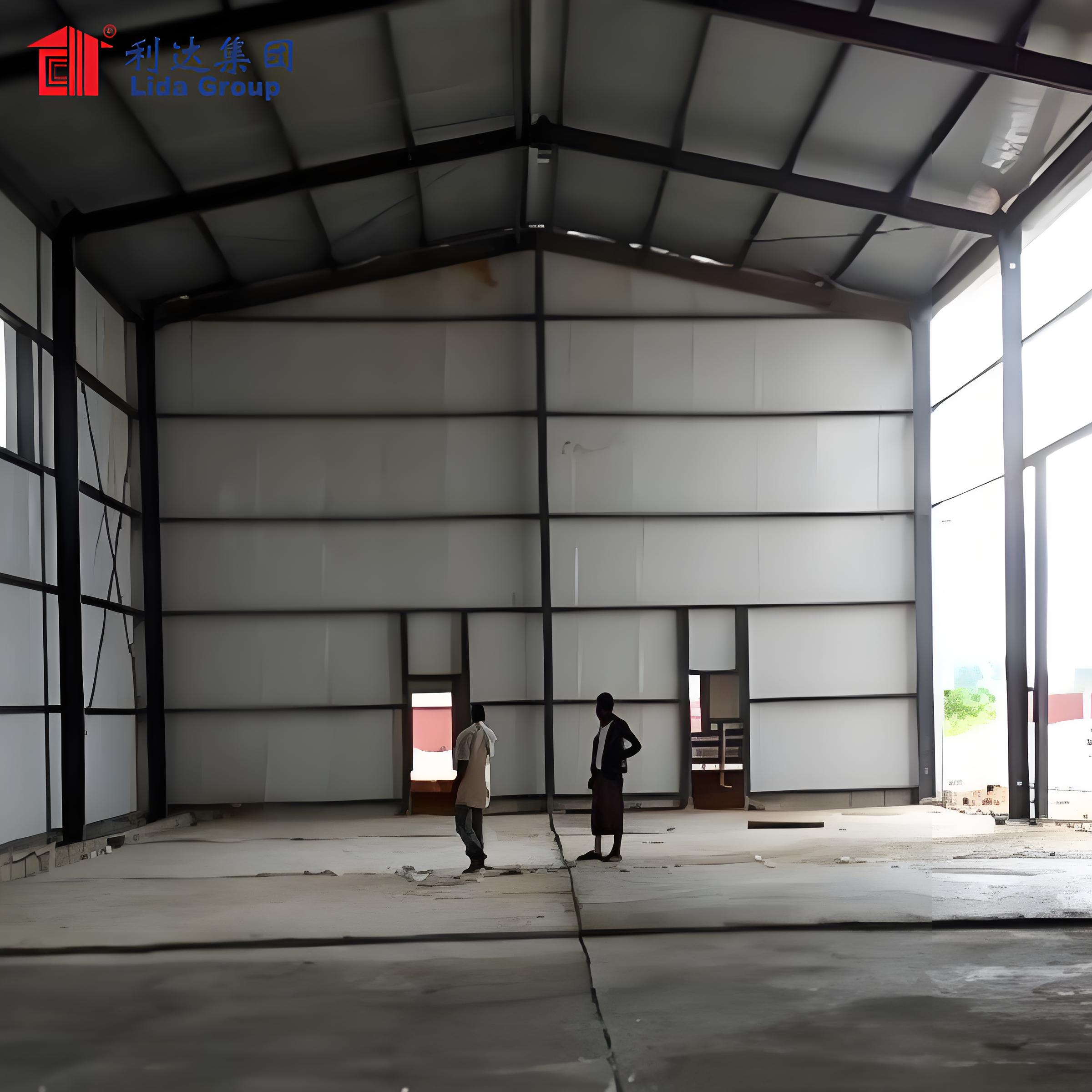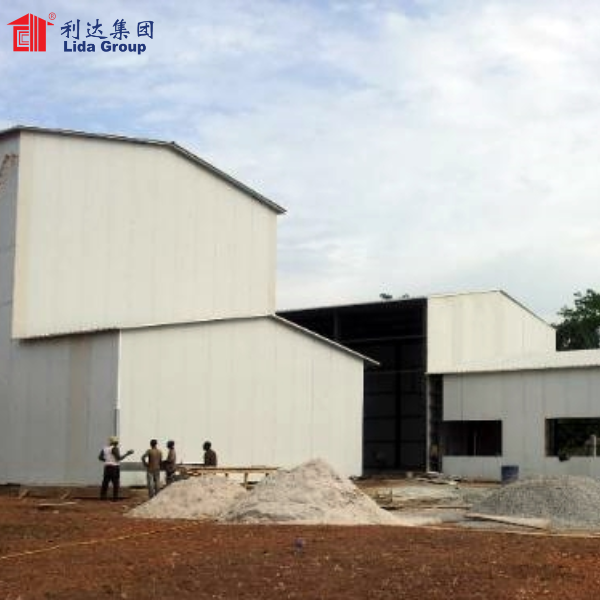Introduction
Qingdao Lida, a prominent steel structure manufacturer. Steel structures have gained popularity across the continent due to their durability, versatility, and cost-effectiveness. In this article, we will explore the impact of Qingdao Lida’s steel structures in Africa, discussing their advantages, applications, and the benefits they bring to the region’s infrastructure development.
- Advantages of Steel Structures
Steel structures offer numerous advantages that make them highly suitable for construction projects in Africa. These advantages include:
a) Strength and Durability: Steel is renowned for its high strength-to-weight ratio, making it an ideal material for constructing structures that can withstand harsh environmental conditions, such as strong winds, earthquakes, and heavy rainfall. Steel structures are highly durable, requiring minimal maintenance and offering a longer lifespan compared to traditional building materials.
b) Speed of Construction: Steel structures can be prefabricated off-site, allowing for faster construction timelines. The use of pre-engineered components and modular construction techniques significantly reduces on-site labor requirements and accelerates project completion. This speed of construction is particularly beneficial in Africa, where rapid infrastructure development is crucial for economic growth.
c) Design Flexibility: Steel structures offer design flexibility, enabling architects and engineers to create innovative and visually appealing structures. The absence of load-bearing walls and columns allows for open floor plans, spacious interiors, and adaptable spaces that can be easily modified or expanded as needs change over time.
d) Cost-effectiveness: While the initial cost of steel structures may be higher than traditional building materials, their long-term cost-effectiveness is compelling. Steel requires less maintenance, has a longer lifespan, and offers better resistance to pests, fire, and environmental degradation. These factors contribute to lower life-cycle costs and a higher return on investment.
- Applications of Steel Structures in Africa
Steel structures have found diverse applications across Africa, contributing to the continent’s infrastructure development. Some notable applications include:
a) Industrial Facilities: Steel structures are widely used in the construction of industrial facilities such as factories, warehouses, power plants, and manufacturing units. The strength and adaptability of steel make it suitable for large, open spaces required for industrial operations.
b) Commercial Buildings: Steel structures are increasingly utilized in the construction of commercial buildings, including office complexes, shopping malls, hotels, and exhibition centers. The design flexibility of steel allows for unique architectural features, large spans, and aesthetically appealing structures.
c) Infrastructure Projects: Steel structures play a vital role in Africa’s infrastructure development, including bridges, stadiums, airports, and railway stations. These structures provide the necessary strength, durability, and cost-effectiveness for transportation and public facilities.
d) Residential Construction: Steel structures are gaining popularity in residential construction due to their durability, sustainability, and design flexibility. Steel-framed houses and apartment buildings offer efficient and comfortable living spaces while reducing construction time and costs.
- Benefits of Qingdao Lida’s Steel Structures in Africa
Qingdao Lida’s steel structures have made a significant impact on Africa’s construction industry, offering several benefits to the region:
a) High-Quality Manufacturing: Qingdao Lida maintains rigorous quality control standards throughout the manufacturing process, ensuring that their steel structures meet international standards and local regulatory requirements. This commitment to quality ensures that the structures are reliable, durable, and able to withstand the African climate conditions.
b) Technical Expertise: Qingdao Lida possesses extensive technical expertise in steel structure design, engineering, and construction. Their experienced team of professionals ensures that each project is executed with precision and efficiency, meeting the specific needs and requirements of clients in Africa.
c) Timely Project Delivery: Qingdao Lida’s prefabrication and modular construction techniques enable them to deliver projects within tight timelines. This timeliness is crucial for Africa’s infrastructure development, allowing for faster completion of projects and quicker utilization of the constructed facilities.
d) Sustainable Solutions: Steel structures manufactured by Qingdao Lida are environmentally friendly and contribute to sustainable development in Africa. Steel is a recyclable material, reducing waste and promoting resource efficiency. Moreover, the durability and longevity of steel structures result in reduced maintenance and replacement needs, minimizing the impact on the environment.
Conclusion
Qingdao Lida’s steel structures have played a pivotal role in Africa’s construction industry, offering numerous advantages, applications, and benefits. The strength, durability, cost-effectiveness, and design flexibility of steel structures make them an ideal choice for Africa’s infrastructure development.
Through their high-quality manufacturing, technical expertise, and timely project delivery, Qingdao Lida has helped transform Africa’s construction landscape. By embracing steel structures, Africa can achieve sustainable development, create resilient infrastructure, and foster economic growth for years to come.
Post time: Jun-19-2024


